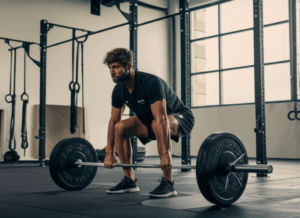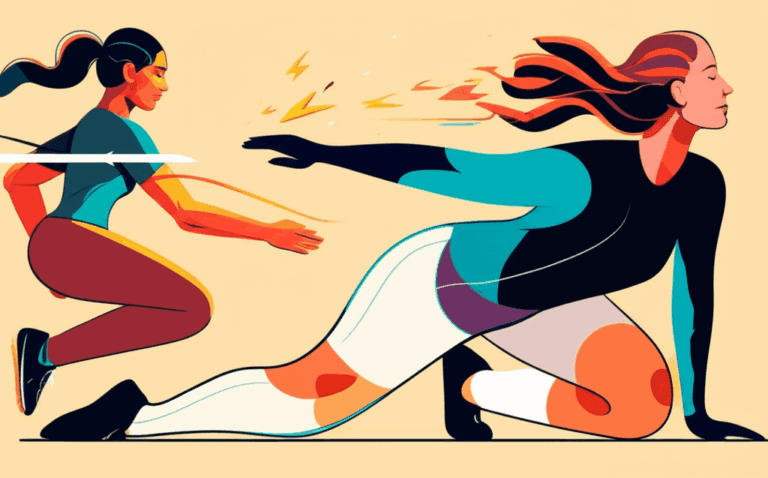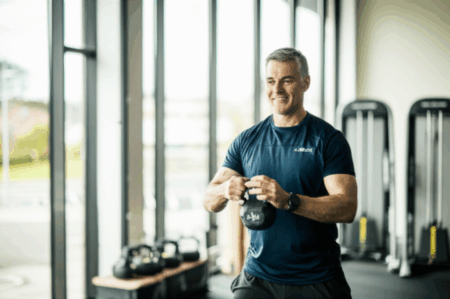Exercise and sleep are two pillars of a healthy lifestyle, intricately linked in a beneficial cycle. Regular physical activity can significantly improve sleep quality, while sufficient sleep is crucial for optimal fitness performance, recovery, and overall well-being. Understanding this relationship can help individuals optimize their routines for maximum benefit.
How Exercise Enhances Sleep
Engaging in regular exercise offers numerous advantages for sleep. Studies show that physical activity can improve sleep quality, reduce sleep onset latency (the time it takes to fall asleep), and decrease the amount of time spent awake during the night. Exercise also helps regulate the body’s circadian rhythm, promoting a more consistent sleep-wake cycle.
Here’s a breakdown of how exercise helps you sleep:
- Regulates Circadian Rhythm: Physical activity acts as a “zeitgeber,” a factor that influences the body’s biological clock, helping to reset disrupted circadian rhythms caused by shift work or jet lag. By promoting stable sleep-wake cycles, exercise improves sleep hygiene.
- Increases Melatonin Production: Exercise can increase the production of melatonin, a hormone that regulates sleep-wake cycles, helping you fall asleep faster and sleep better.
- Reduces Stress: Physical activity reduces stress, a common impediment to falling and staying asleep. Exercise helps lower levels of cortisol, a stress hormone linked to sleep disturbances.
- Enhances Mood: Exercise improves mood, leading to increased enthusiasm for physical activity and a positive feedback loop. Active people tend to have higher levels of positive affect and tranquility during exercise, and lower levels of negative affect and tiredness.
- Promotes Deep Sleep: Moderate aerobic exercise increases the amount of slow-wave sleep, which is deep sleep that allows the brain and body to rejuvenate.
- Stabilizes Mood and Decompresses the Mind: Exercise can help stabilize your mood and decompress the mind, which is important for naturally transitioning to sleep.
- Regulates Body Temperature: Exercise raises your core body temperature, signaling to your body clock that it’s time to be awake. After about 30 to 90 minutes, the core body temperature starts to fall, facilitating sleepiness.
Types of Exercise for Better Sleep
Both aerobic and resistance exercises have been shown to improve sleep quality. Aerobic exercises like running, swimming, and cycling can enhance sleep duration and depth, while resistance training can improve sleep quality, particularly for those with sleep problems.
- Aerobic Exercise: Aerobic exercise for at least 30 minutes a day can improve sleep quality. Studies have shown that aerobic exercise can be as effective as sleeping pills for some people. It is associated with better sleep quality and is effective in patients with insomnia.
- Resistance Exercise: Chronic resistance exercise improves all aspects of sleep, with the greatest benefit for sleep quality in individuals with sleep problems. Higher intensity and greater frequency of training offer greater sleep benefits.
Timing Your Workouts
While exercise generally promotes better sleep, the timing of workouts can be crucial. Exercising too close to bedtime may interfere with sleep for some individuals.
- Avoid Intense Exercise Before Bed: High-intensity workouts close to bedtime can disrupt sleep. More strenuous workouts closer to bedtime coincided with greater disruptions to sleep and nighttime cardiac activity.
- Afternoon Workouts are Ideal: Sleep experts recommend exercising at least two to three hours before going to bed, with late afternoon being the ideal time. This allows the body enough time to cool down for comfortable sleep.
- Morning Workouts: Morning workouts appear to contribute to achieving that nighttime decline in blood pressure, maximizing sleep benefits. They also provide a rush of endorphins, energizing you for the rest of the day.
- Evening Workouts: If you prefer evening workouts, aim to finish at least one to two hours before sleeping. This will allow your body temperature to drop and energy-raising endorphins to leave your system.
Considerations
It’s important to consider individual differences when planning exercise routines for better sleep. Some people may find that exercising close to bedtime keeps them awake, while others may not experience any negative effects. Experiment to find the best time to exercise that works for you.
- Listen to Your Body: Be mindful of how your body responds to exercise at different times of the day. Adjust your workout schedule based on your individual needs and preferences.
- Consistency is Key: Regular exercise is more effective for improving sleep than sporadic workouts. Aim for consistent physical activity most days of the week.
Why Sleep is Essential for Your Fitness Routine
Adequate sleep is not just about feeling rested; it’s a fundamental component of a successful fitness routine. Sleep plays a vital role in muscle recovery, hormone regulation, energy levels, and cognitive function, all of which are essential for optimizing physical performance.
Here’s how sleep benefits your fitness routine:
- Muscle Recovery and Repair: Sleep is the time when your body repairs and rebuilds muscle tissue. During sleep, the body releases growth hormones and testosterone, essential for muscle recovery and repair. Sleep also increases blood flow to the muscles, delivering essential nutrients and oxygen needed for recovery.
- Hormone Regulation: Sleep plays a vital role in regulating hormone levels in the body. Adequate sleep helps regulate levels of the stress hormone cortisol, which can impact metabolism and immune function.
- Energy Levels: Sleep boosts cognitive function and overall energy levels, which helps people get through their days of intense gym sessions. Being well-rested energizes muscles, sharpens reflexes, and improves endurance, leading to better workout performance.
- Cognitive Function: Sleep has been linked to improved cognitive function, including attention, reaction time, and decision-making. Prioritizing sleep can increase performance and accuracy during training and competition.
- Prevents Injuries: Sleep deprivation can affect the safety of exercise, with increased sports injuries reported in those who are sleep deprived.
Consequences of Sleep Deprivation
Chronic sleep deprivation can have serious consequences on your health and fitness progress. Lack of sleep can impair the body’s insulin response, potentially contributing to the onset of diabetes. It has also been associated with an increased risk of obesity and cardiovascular disease.
- Reduced Physical Performance: Sleep deprivation won’t affect your cardiovascular and respiratory responses to exercise, aerobic and anaerobic performance capability, muscle strength, or electromechanical responses. However, you will fatigue faster on less sleep, making it feel tougher to work out to your maximum capacity.
- Increased Risk of Health Issues: Chronic sleep deprivation is linked to an increased risk of various health issues, including obesity, heart disease, diabetes, and even certain types of cancer.
- Impaired Cognitive Function: Lack of sleep can alter memory retention, cause a negative mood, and inhibit your capacity to operate a motor vehicle. Sleep deprivation impairs your ability to function to a greater extent than if you were intoxicated.
- Hormonal Imbalance: Sleep deprivation can disrupt the body’s hormonal balance, leading to negative effects on physical and mental health.
Tips for Prioritizing Sleep
Making sleep a priority is essential for maximizing the benefits of your fitness routine. Here are some tips for improving your sleep habits:
- Establish a Consistent Sleep Schedule: Go to bed and wake up at the same time every day, even on weekends, to regulate your body’s natural sleep-wake cycle.
- Create a Relaxing Bedtime Routine: Engage in calming activities before bed, such as reading, taking a warm bath, or practicing relaxation techniques like meditation or deep breathing.
- Optimize Your Sleep Environment: Make sure your bedroom is dark, quiet, and cool. Use blackout curtains, earplugs, or a white noise machine to minimize distractions.
- Limit Screen Time Before Bed: The blue light emitted from electronic devices can interfere with melatonin production, making it harder to fall asleep. Avoid using smartphones, tablets, and computers for at least an hour before bed.
- Avoid Caffeine and Alcohol Before Bed: Caffeine and alcohol can disrupt sleep patterns. Avoid consuming these substances in the hours leading up to bedtime.
- Ensure Adequate Exposure to Sunlight: Natural light helps regulate your circadian rhythm. Spend time outdoors during the day, especially in the morning.
Putting It All Together: A Synergistic Approach
Exercise and sleep are interconnected elements of a healthy lifestyle. Prioritizing both can lead to significant improvements in physical fitness, mental well-being, and overall quality of life.
- Balance Exercise and Rest: Aim for a balance between physical activity and rest. Don’t overtrain, and allow your body adequate time to recover between workouts.
- Listen to Your Body: Pay attention to your body’s signals and adjust your exercise and sleep routines accordingly.
- Be Consistent: Consistency is key. Make exercise and sleep regular parts of your daily routine.
- Seek Professional Guidance: If you have persistent sleep problems or fitness-related concerns, consult with a healthcare professional or certified trainer for personalized advice.
Conclusion
The relationship between exercise and sleep is a powerful one. By understanding how these two elements influence each other, you can create a synergistic approach to fitness that maximizes your results and enhances your overall health. Whether you’re an athlete striving for peak performance or simply seeking a healthier lifestyle, prioritizing both exercise and sleep is essential for achieving your goals.







